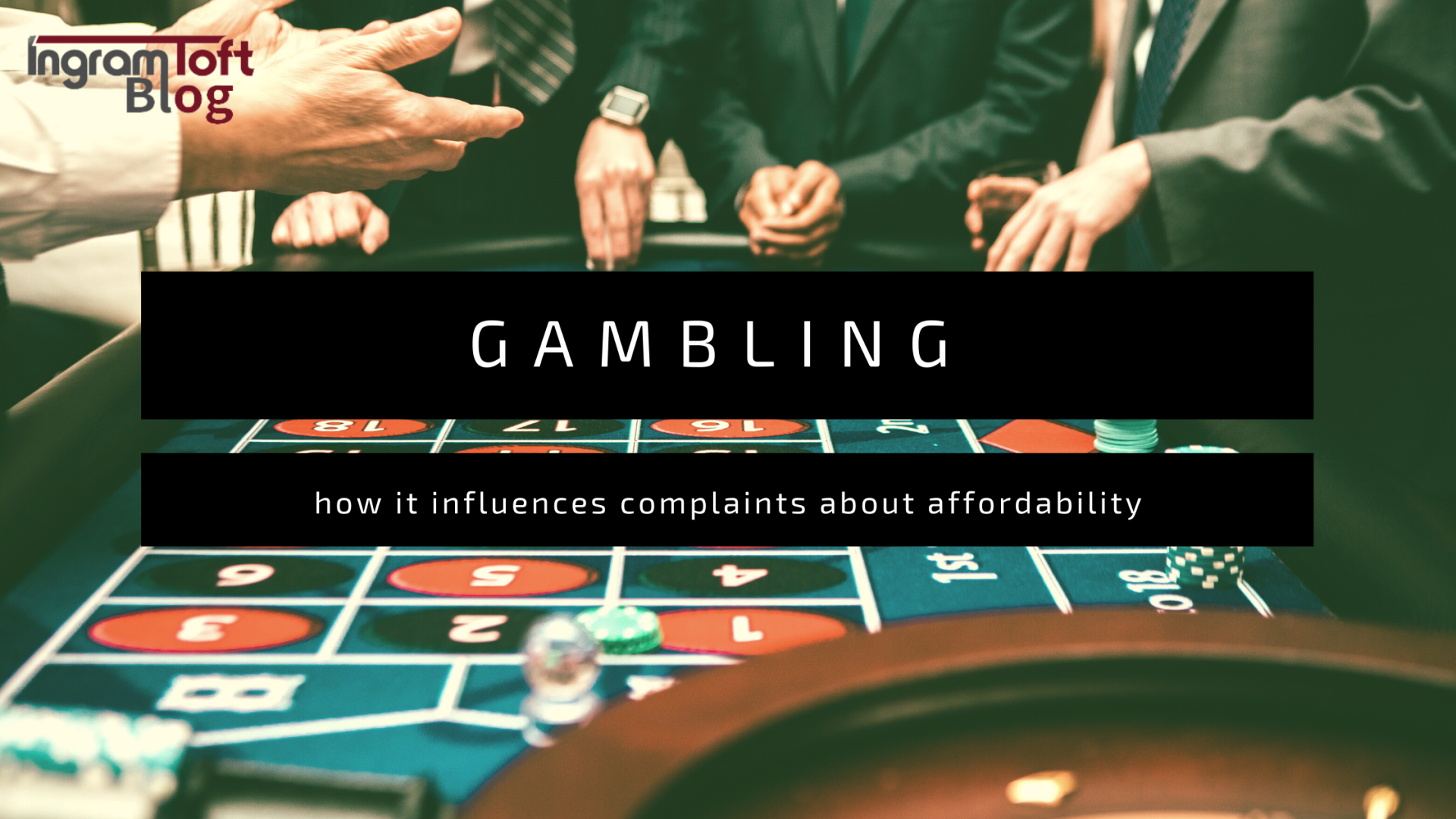Gambling – how it influences complaints about affordability
Take loans, credit cards, and overdraft refunds.

Most people who have gambling issues have been given credit that they cannot afford. This encouraged their gaming, and they became even more in debt as a result.
If you can return your credit while still paying your other debts, bills, and costs, then credit is manageable. If it's unaffordable, Ingramtoft can assist you in seeking for a refund of interest and fees and file a complaint with the Financial Ombudsman (FOS) if the lender refuses or rejects the Initial complaint.
But gaming makes things more complicated - maybe that loan or credit card would have been cheaper if you could just quit gambling? Many who have filed a complaint about affordability are concerned that their case will be denied because of their gambling patterns.
This article examines some FOS judgements involving gaming and affordability issues.
FOS believes that if a lender knew – or should have known – that the borrower had a gambling problem, they should not have supplied the credit.
It makes no difference who the lender is. As you can see from the examples below, it's not just payday lenders who are involved; major high-street banks can also be involved.
It's the overall attitude against gambling that matters here, and FOS's stance is largely consistent across all lenders and credit kinds.
What factors does FOS consider before making a decision?
The lender cannot claim that the borrower should have disclosed a gambling problem.
Case 1: It doesn't matter that the customer didn't tell the lender he had a gambling problem:
If it had looked at Mr A's bank statements, it would have soon realized he was gambling and couldn't afford to pay back the money. Mr A's inability to inform Mr Lender about the gaming does not exclude him from receiving compensation because Mr Lender failed to conduct proportional checks.
Gambling is not a non-discretionary expense.
Case 2: Payday UK argued that gambling transactions should not have been included in Mr B's expenses for determining affordability since they were not necessary.
The Ombudsman was not convinced:
Mr B's bank statements demonstrate that by this time, he was spending a significant portion of his income on gaming. So, if Payday UK was thinking about what Mr B would have available the following month (having a complete awareness of his circumstances), I believe he would have continued to spend similar amounts on gaming based on his previous spending patterns.
At this point, I don't believe it's fair to suggest Mr B's gambling spending was discretionary.
There are many other factors that FOS considers when making a decision. If you think you may have been, or is currently in this position, we would love to hear your story and provide assistance in filing a complaint.
We are a claims management company that takes matters seriously with great respect to our client's confidentiality.
Contact us today to learn more.











